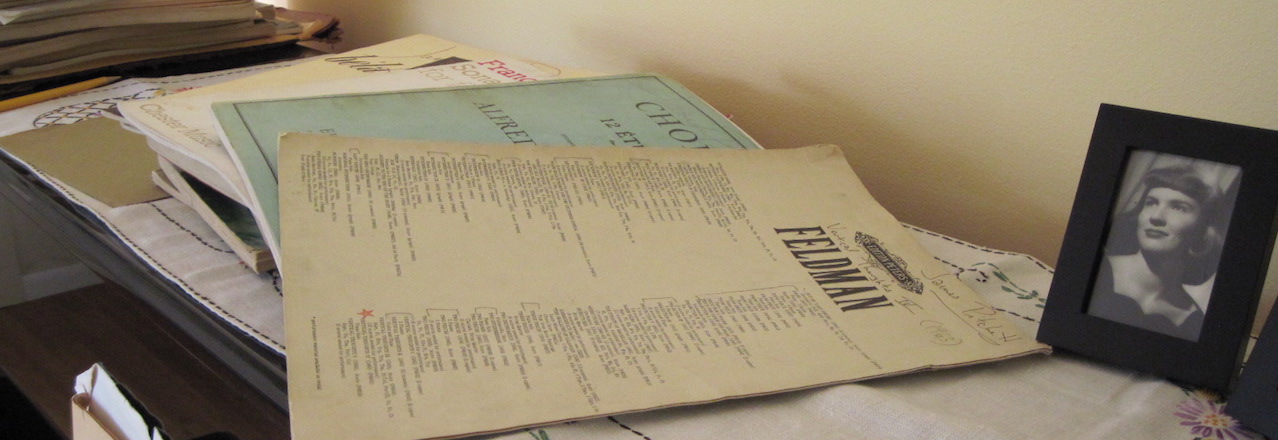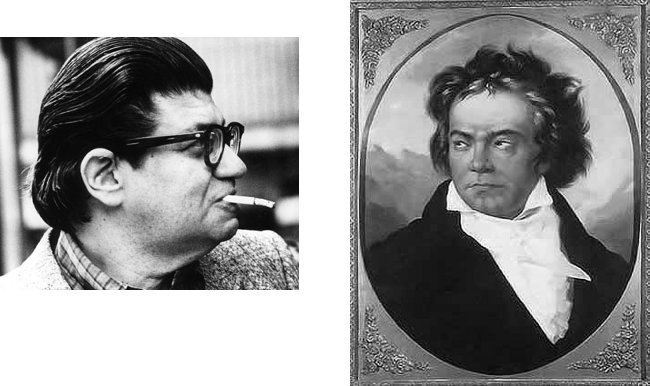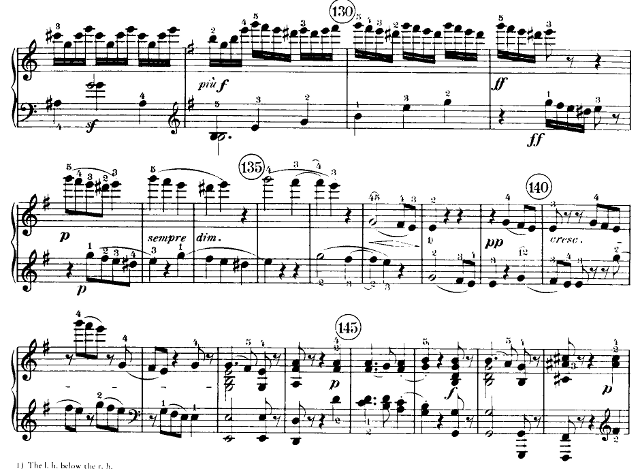I decided it was time to learn another Beethoven piano sonata, and so I picked up Op. 90, and once again I found myself hearing Feldman in the midst of Beethoven.
It happened at the transition out of the development and into the recapitulation. There’s a very energetic passage with the right hand playing a sixteenth-note figure and the left hand rising up until it reaches an e-minor arpeggio, a tonic 6-4 setting us up for the recap. And then a somewhat strange thing happens at bar 133:
Technically, it’s quite clear what happens here. Beethoven takes that sixteenth-note figure that embellishes the tonic e-natural and methodically slows it down: sixteenths, eighths, quarters, halves. Then he truncates the pattern, brings it down into a lower register, and collapses the distance between the hands (making it, I might add, really tricky to play clearly). Then he speeds it back up to eighths, cycles through a couple of different registers, and winds up with his opening again at measure 144.
The feeling of this passage is odd and unsettled. The headlong rush is abruptly halted, and then what? Beethoven becomes fascinated with this one tiny moment, this one innocuous turning figure. We drop out of time and into this long pause while Beethoven moves his way forward with curiosity. Then all of a sudden he snaps to and we’re moving along again. It’s a bit like the conductor stopping the train to get a particularly good look at a butterfly gliding in the field next to the tracks.
What connects this to Feldman for me is the way that it makes me aware of two different worlds that a piece of music can reveal to us. There’s the world of the piece itself, the dramatic world that the composer has created for us to inhabit. This is the way we are used to music like Beethoven’s working, the world of everything up to bar 133. Then there’s this other world, the world of the music’s creation, the world in which the composer is discovering the piece: right here, right now. There can be a drama here, but it’s not the constructed musical drama of the first world. It’s the drama of creation, of the composer engaging instrument, sound, or time.
Heard this way, the passage from Op. 90 above is unsettling not just because the forward motion comes to a sudden halt, but because the dramatic world of the sonata itself comes to an end. We find ourselves transported to Beethoven’s studio, watching him compose at the piano. It’s a bit surreal: we’re like cartoon characters who suddenly encounter the drawing hand of the animator and realize that he’s been inventing our world.
This second world is not what we expect of Beethoven, but it is where Morton Feldman lived. Works such as For Bunita Marcus occur almost entirely in the world of composing, not in the world of a created musical storyline. The continuity is one in which musical images appear and then are reflected upon, extended in time. Hence the music has the flow of thought: it gives us the impression of hearing the composing taking place right here, right now.
This is what Feldman meant when he told Cole Gagne and Tracy Caras that “it’s involved more with thought than ideas,” or “I’m involved with ‘problem solving’, but I don’t know what the problem is.” An idea is a mental object that functions in that first world of the musical storyline. It could be the script, a stage setting, the lighting, or a prop in the drama of the music. Thought is something completely different: a process, not an object. An idea is the solution to a problem; problem solving is the process of looking for a way out. The difference becomes very clear in Feldman’s large-scale works. As he put it to Gagne & Caras, “to get through a big piece, you don’t come with any kind of prearranged schema; you just find ways to survive in this big piece. And the most important survival kit is concentration.”
So in light of Feldman, what I hear in that passage of the piano sonata is Beethoven looking for a way to survive—just at a much smaller scale.



Thank you very much for this excellent comment.